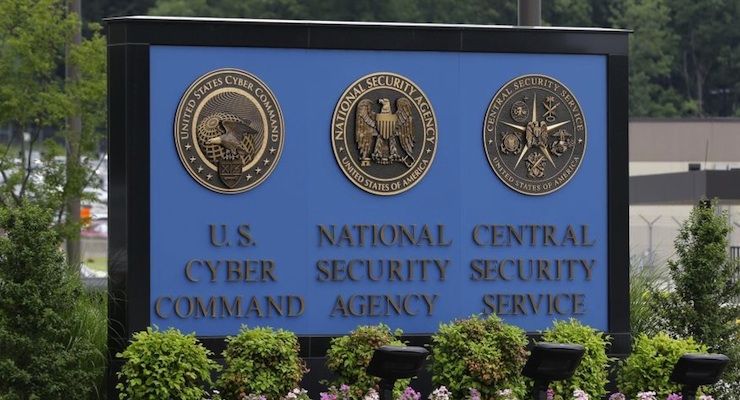

June 6, 2013: A sign stands outside the National Security Agency (NSA) campus in Fort Meade, Md. (Photo: AP)
The U.S. Senate blocked a bipartisan House bill to end bulk metadata collection and a 2-month extension bill for the USA Patriot Act early Saturday. The vote came only days after a report from the Justice Department inspector general found that the agency could not point to a single major terrorism plot thwarted as a result of the vast expansion of federal spying authority granted in the bill.
The sticking point in the House bill, known as the USA Freedom Act, was a provision to end the National Security Agency’s (NSA) bulk collection of metadata, including domestic phone records. Instead, the records would remain with telephone companies that would have been subject to a case-by-case review.
Senate Majority Leader Mitch McConnell led the push to keep the bill intact, putting hime at odds with the more conservative House Republicans, who ironically found common ground with a minority of civil libertarian Democrats. Fellow Kentucky lawmaker and Republican presidential contender Rand Paul led the charge against the wholesale renewal of the bill, staging an 11-hour filibuster-like speech on the Senate floor Wednesday.
“This week, I stood on the floor for roughly 11 hours in defense of the Fourth Amendment and successfully blocked the renewal of the Patriot Act,” Paul said in a statement. “We should never give up our rights for a false sense of security. This is only the beginning — the first step of many. I will continue to do all I can until this illegal government spying program is put to an end, once and for all.”
Paul launched a petition on his website this week, which has garnered over a million signatures in support of reforming the bill. Still, McConnell announced early Saturday that the Senate would begin a week-long Memorial Day break and return Sunday, May 31, just hours before the programs lapse.
Even the White House pressured Senate members to pass the bipartisan House bill, but it was ultimately blocked by a vote of 57-42, which is just shy of the 60-vote threshold to move it forward. The vote was followed by the rejection of a two-month extension to the existing programs, as well, by a vote of 54-45. McConnell repeatedly lowered the duration for of time for a short-term renewal of the current law, even going out to June 2, but opponents stuck to their guns and objected each time.
Unfortunately, whatever version of the bill the Senate approves must also be passed by the House. But lower house members have already left for Washington for Memorial Day weekend. Agency officials warn they will lose valuable anti-terror surveillance tools if the Senate fails pass the House.
At the heart of the issue is Section 215 of the Patriot Act, which is set to expire at the end of May. It is used by the government to justify secretly collecting the “to and from” information about nearly every American landline telephone call. When former NSA contractor Edward Snowden revealed the details of the program in 2013, a majority of Americans were outraged.
The most damning journalistic sin committed by the media during the era of Russia collusion…
The first ecological study finds mask mandates were not effective at slowing the spread of…
On "What Are the Odds?" Monday, Robert Barnes and Rich Baris note how big tech…
On "What Are the Odds?" Monday, Robert Barnes and Rich Baris discuss why America First…
Personal income fell $1,516.6 billion (7.1%) in February, roughly the consensus forecast, while consumer spending…
Research finds those previously infected by or vaccinated against SARS-CoV-2 are not at risk of…
This website uses cookies.